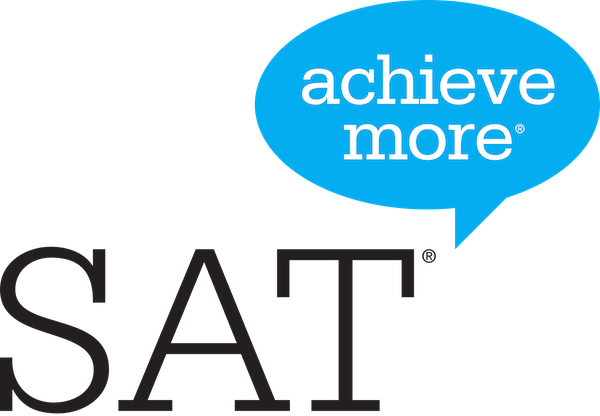If you're applying to Northeastern University, you'll need to know their testing requirements. Does Northeastern require SAT Subject Tests or not? What about the regular SAT or ACT? We answer these questions here and go over all of Northeastern's major testing requirements.
You'll have lots of decisions to make when you begin college, and one of them is the degree you want to earn when you graduate. BA and BS degrees are the two most popular degrees for undergrad students to get. But what is the difference between BA and BS degrees? How will they affect which classes you need to take? And is one more degree impressive than the other? Read this guide for answers to all your BA vs BS degree questions.
The 14 Most Unusual College Majors: Is One Right for You?
According to the National Center for Education Statistics, the top five most popular college majors are business, health profession-related majors, history or social science majors, psychology, and biology. But what if none of those pique your interest? What if you want to major in something more off-the-beaten-path, or even just get a broader idea of what options you have for potential college majors? We're here to help!
We've compiled a list of 14 unusual yet cool college majors, ranging from bagpiping to puppetry. After looking through our list of the most unusual college majors, you'll also learn which colleges allow you to design your own major, and what the pros and cons of getting an unusual major are.
The 13 Hardest College Majors to Challenge Yourself
What are the hardest college majors? You might assume it's all those complicated STEM majors—and you wouldn't necessarily be wrong.
In this article, we look at the various factors normally used to determine whether a major is hard before going over the 13 most difficult majors based on how many hours students typically spend each week preparing for classes. We also give you a few tips for finding the right college major for you.
What Are the Claremont Colleges? A Guide to the Claremont Consortium
The Claremont Colleges—which are also known as the Claremont Consortium or the 7Cs—are a group of private liberal arts schools in Southern California. As a consortium, these universities work together to provide common resources and a wide range of academic opportunities for their students.
If you're not 100% sure what a college consortium is or how it works, don't worry. In this article, we’ll teach you everything you need to know about the Claremont Consortium. We’ll explain:
- The history of the Claremont Colleges
- Which colleges are part of the Claremont Consortium
- The essential stats for each Claremont College, including admissions rate, enrollment numbers, and national ranking
- The features that make each Claremont College unique
- The benefits of attending a Claremont College
We’ll wrap up with our five top tips for getting into a Claremont College. Now, let’s get started!
Applying to college is a nerve-wracking process, but have no fear: if you want to go to college even with a low SAT score, there is most likely a school for you!
In this article, I'll list the colleges with the lowest 25th percentile SAT scores for their admitted students. The 25th percentile SAT score means that 25% of admitted students to that university scored at or below that number; the 75th percentile SAT score means that 75% of admitted students scored at or below that score (25% scored higher). I'll also explain why their low SAT criterion doesn’t necessarily mean the university is bad.
The 37 Colleges With the Highest ACT Scores, Ranked
Did you know that the ACT is accepted by all four-year colleges? For this article, I've compiled a list of colleges with the highest average ACT scores for admitted students. With this data, you can compare your own ACT scores (or goal scores) with those earned by admitted applicants at top colleges.
We'll also talk about what these rankings actually mean: are these schools the best you can attend? Are they the most competitive? What if your ACT scores are below the listed averages?
Read on to find out the answers to these questions (and more)!
Updated List: Colleges With the Highest SAT Scores
If you've already taken the SAT, you know it will likely be an important component of your college applications. Maybe you've set a goal score for yourself based on the types of colleges you're interested in. Even if you haven't taken the SAT yet or are still considering whether to take it, you probably want to know more about what the most competitive colleges and universities expect when it comes to applicants' standardized test scores.
I've compiled a list of colleges with the highest average SAT scores for admitted students. You'll be able to compare your own SAT scores (or goal scores) with those of top colleges and universities. I'll also talk about what these rankings actually mean so that you can interpret this information effectively. For example, are these schools the best schools you can attend? Are they the most competitive? What do you do if your SAT scores are below the listed averages?
Read on for a list of the top schools ranked by SAT score, and answers to the above questions!
The college application process can be stressful, but don't worry, if you hope to attend a four-year university and have a low ACT score, there is quite possibly a college for you!
In this article, I list the universities with the lowest 25th percentile ACT scores for their admitted students. The 25th percentile ACT score signifies that 25% of admitted applicants to the school received an ACT score at or below that number. The 75th percentile ACT score signifies that 75% of admitted applicants to the school received an ACT score at or below that score (25% scored higher). I will also explain why you shouldn't always judge the colleges by their low 25th/75th percentile ACT.
What Is a Safety School? How Should You Choose Yours?
For those of you who have started researching college admissions, you may have heard of the concept of a "safety school." What is a safety school? Simply, a safety school is one in which your odds of getting in are extremely high. Everyone who applies to college should apply to safety schools. Why? You don't want to risk getting rejected from all the schools you apply to.
In this article, I'll define and explain the concept of a safety school. Furthermore, I'll discuss how to identify your safety schools and determine the number of safety schools you should apply to.
6 Ways College May Be Different in Fall 2020...And 1 Way It Won't
College students are eagerly awaiting an answer to the question, “What’s going to happen on college campuses this fall because of coronavirus?” Although colleges and universities are working hard to plan for the fall semester, the truth is that most universities haven’t finalized their COVID-19 policies for the fall.
While what happens with college this fall is out of your hands, we’re starting to get a sense for the possible changes to college life students can expect.
In this article, we’ll go over six ways college may be different in Fall 2020. We’ll also help you assess how these changes could impact your life and help you figure out how to tackle these challenges!
So let’s dive in.
What Is the Accuplacer Test? An Expert Guide to the Exam
What is the Accuplacer test? Are you a new college student who needs to take the test for your school? Are you a school administrator who's heard the Accuplacer can help ensure students get placed in the correct classes? The Accuplacer is different than most other standardized tests, and it's important to understand what the test is for, what the testing experience will be like, and what Accuplacer scores will mean. We cover everything you need to know about the Accuplacer in this guide, including who should take it, what it covers, how you sign up for the test, and what Accuplacer scores mean (and why it's impossible to pass or fail the test).
Should You Defer College a Year During the COVID-19 Pandemic?
The COVID-19 pandemic has upended much of the world, and colleges are no exception. Around the world, colleges have sent students home and implemented virtual classes. No more dorm living, cheering for your team at sports games, or meeting new people in the cafeteria. Now, many students are learning via online classes in their parent's homes. And, unfortunately, no one yet knows if the coronavirus will be contained enough to allow campuses to open up in the fall. For incoming college freshmen, this is a huge blow. They already missed out on their final months of high school, along with all that entails such as prom and graduation. Now they might begin their college experience in much the same way.
For some of these students, the thought of losing even more traditional experiences, such as moving into the dorms with a roommate, joining college clubs, and engaging in classroom debates, is enough to make them consider postponing college until students can return to classes. In fact, if schools don't resume in-person classes, more students than ever before may end up taking a gap year. Currently, 16% of high school seniors are planning to take a gap year rather than virtual classes.
But is deferring college during a pandemic the right decision for you? What factors do you need to consider and what questions do you need to ask yourself before you decide? We go over everything you need to know and think about to make the best decision for you.
Thinking about becoming an engineer? First, you’ll need to choose an engineering major! There are many types of engineering, and the specialization you choose will determine the types of classes you take and which jobs you’re most qualified for. In this guide, we discuss everything you need to know about different engineering majors, including the classes you’ll take, the degree you’ll earn, what the hardest engineering majors are, and more. We also go over nine types of engineering majors so you can get a sense of what you’ll learn and what the types of jobs you can get with each specialization. The guide ends with tips for things you can do as a high school student to give yourself the best chance of succeeding as a future engineering student.
What Is a Baccalaureate Degree? How Does It Differ From a Bachelor's?
Baccalaureate degree vs bachelor’s degree: you’ve likely heard and used that second term before, but maybe you’re not so sure what the first one means. Is it a different type of degree altogether? What is a baccalaureate degree and what does it do?
This article will go over the baccalaureate degree meaning, explain how it differs from other types of degrees, and introduce the different kinds of baccalaureate degrees you can get. To wrap up, we’ll give you some tips for helping you determine whether a baccalaureate program is ultimately right for you.
























